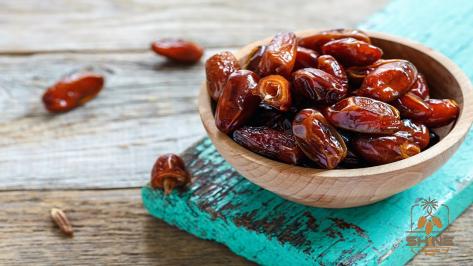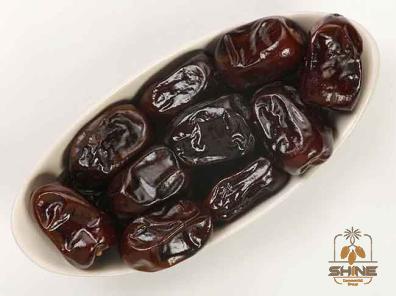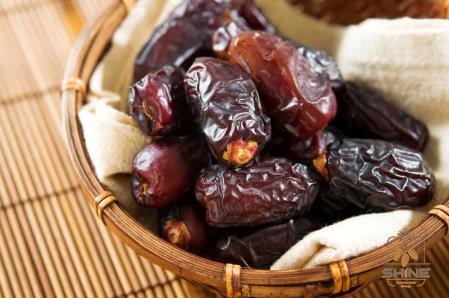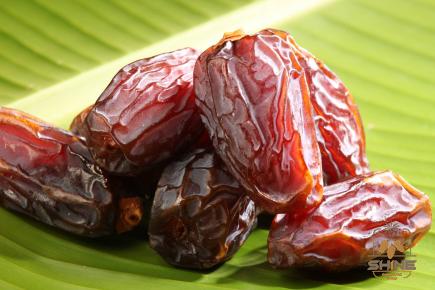Discover the elusive charm of wet Zahedi dates, a variety known for its unique texture, rich taste, and numerous health benefits. From enhancing the flavors of sweet and savory dishes to promoting overall well-being, these luscious fruits have been cherished in culinary traditions around the world for centuries. In this comprehensive guide, we’ll delve into the fascinating world of wet Zahedi dates, explore their nutritional profile, uncover their culinary uses, and offer some helpful tips on purchasing and storing. So, let’s embark on a flavorful journey into the realm of wet Zahedi dates! 1. An Introduction to Wet Zahedi Dates: Wet Zahedi dates are plump, oval-shaped fruits with a golden-brown hue and a delightful semi-soft texture.
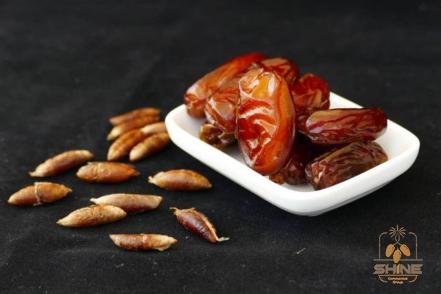
.
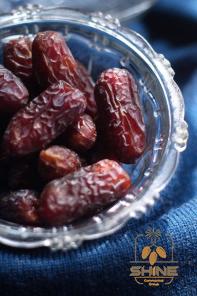 They originate from the Zahedi palm tree (Phoenix dactylifera Zahedi), a species that thrives in arid regions, particularly in Iran and other Middle Eastern countries. These dates are typically harvested at the end of summer and early autumn when they reach their peak ripeness but retain a higher moisture content compared to their dried counterparts.
They originate from the Zahedi palm tree (Phoenix dactylifera Zahedi), a species that thrives in arid regions, particularly in Iran and other Middle Eastern countries. These dates are typically harvested at the end of summer and early autumn when they reach their peak ripeness but retain a higher moisture content compared to their dried counterparts.
..
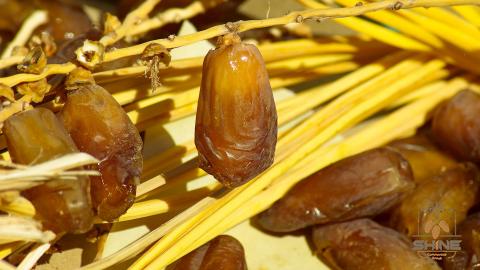 2. Nutritional Profile of Wet Zahedi Dates: Wet Zahedi dates are not only a delectable treat but also a rich source of essential nutrients. They are packed with dietary fiber, vitamins, and minerals, making them a perfect addition to a healthy and balanced diet. A 100g serving of wet Zahedi dates contains approximately: – Calories: 282 – Carbohydrates: 75g – Dietary Fiber: 8g – Protein: 2g – Fat: 0.4g – Vitamin B6: 0.34mg – Potassium: 692mg – Iron: 2mg – Magnesium: 43mg These nutritional powerhouses have gained popularity among health-conscious individuals due to their potential to boost digestion, improve heart health, support bone strength, and stabilize blood sugar levels. 3. Culinary Versatility of Wet Zahedi Dates: Wet Zahedi dates offer a multitude of culinary possibilities. You can enjoy them as a standalone snack or incorporate them into an array of both sweet and savory dishes. Here are some popular ways to savor the unique flavor and texture of wet Zahedi dates: – Sweet Delights: Wet Zahedi dates make an excellent natural sweetener in baking.
2. Nutritional Profile of Wet Zahedi Dates: Wet Zahedi dates are not only a delectable treat but also a rich source of essential nutrients. They are packed with dietary fiber, vitamins, and minerals, making them a perfect addition to a healthy and balanced diet. A 100g serving of wet Zahedi dates contains approximately: – Calories: 282 – Carbohydrates: 75g – Dietary Fiber: 8g – Protein: 2g – Fat: 0.4g – Vitamin B6: 0.34mg – Potassium: 692mg – Iron: 2mg – Magnesium: 43mg These nutritional powerhouses have gained popularity among health-conscious individuals due to their potential to boost digestion, improve heart health, support bone strength, and stabilize blood sugar levels. 3. Culinary Versatility of Wet Zahedi Dates: Wet Zahedi dates offer a multitude of culinary possibilities. You can enjoy them as a standalone snack or incorporate them into an array of both sweet and savory dishes. Here are some popular ways to savor the unique flavor and texture of wet Zahedi dates: – Sweet Delights: Wet Zahedi dates make an excellent natural sweetener in baking.
…
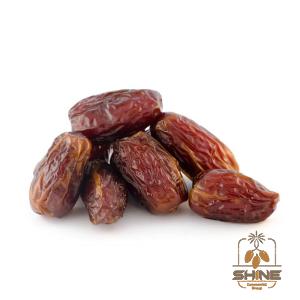 Add them to cakes, cookies, bread, or even smoothies to enhance their taste and nutritional value. You can also indulge in date-based sweets like date bars, energy bites, and puddings. – Savory Sensations: These dates complement savory dishes beautifully. Incorporate them into stews, tagines, and roasted vegetable medleys to lend a subtle sweetness and depth of flavor. You can also stuff them with cheese, almonds, or other nuts for an appetizing finger food option. – Salad Enhancers: Wet Zahedi dates bring an interesting dimension to salads, balancing out the flavors with their subtle sweetness. Dice them and toss them into leafy green salads, grain bowls, or fruit salads for a burst of natural sweetness. 4. Health Benefits of Wet Zahedi Dates: Beyond their delectable taste, wet Zahedi dates offer a range of health benefits that make them a valuable addition to a well-rounded diet. Let’s explore some of the benefits they provide: – Digestive Health: The high fiber content in wet Zahedi dates promotes healthy digestion, preventing constipation and supporting regular bowel movements. – Heart Health: These dates are low in fat and contain essential minerals like potassium and magnesium, which are integral to cardiovascular health. Consuming wet Zahedi dates may help regulate blood pressure, reduce the risk of heart disease, and maintain overall heart health. – Bone Strength: Wet Zahedi dates contain minerals like calcium and phosphorus, essential for maintaining strong bones and preventing conditions like osteoporosis. – Blood Sugar Control: Despite being naturally sweet, wet Zahedi dates have a relatively low glycemic index, meaning they release glucose into the bloodstream slowly. They can be a healthier alternative to refined sugars and may help regulate blood sugar levels.
Add them to cakes, cookies, bread, or even smoothies to enhance their taste and nutritional value. You can also indulge in date-based sweets like date bars, energy bites, and puddings. – Savory Sensations: These dates complement savory dishes beautifully. Incorporate them into stews, tagines, and roasted vegetable medleys to lend a subtle sweetness and depth of flavor. You can also stuff them with cheese, almonds, or other nuts for an appetizing finger food option. – Salad Enhancers: Wet Zahedi dates bring an interesting dimension to salads, balancing out the flavors with their subtle sweetness. Dice them and toss them into leafy green salads, grain bowls, or fruit salads for a burst of natural sweetness. 4. Health Benefits of Wet Zahedi Dates: Beyond their delectable taste, wet Zahedi dates offer a range of health benefits that make them a valuable addition to a well-rounded diet. Let’s explore some of the benefits they provide: – Digestive Health: The high fiber content in wet Zahedi dates promotes healthy digestion, preventing constipation and supporting regular bowel movements. – Heart Health: These dates are low in fat and contain essential minerals like potassium and magnesium, which are integral to cardiovascular health. Consuming wet Zahedi dates may help regulate blood pressure, reduce the risk of heart disease, and maintain overall heart health. – Bone Strength: Wet Zahedi dates contain minerals like calcium and phosphorus, essential for maintaining strong bones and preventing conditions like osteoporosis. – Blood Sugar Control: Despite being naturally sweet, wet Zahedi dates have a relatively low glycemic index, meaning they release glucose into the bloodstream slowly. They can be a healthier alternative to refined sugars and may help regulate blood sugar levels.
